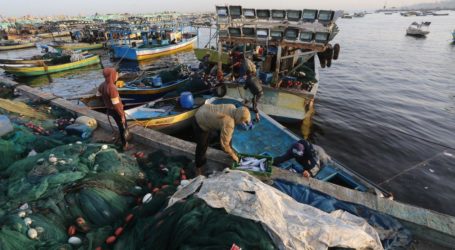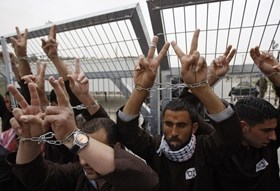REPORT: SUFFERING OF PALESTINIAN REFUGEES IN SYRIA INCREASING
 London, Gaza, 18 Ramadan 1434/25 July 2013 (MINA) – National Working Group for the Palestinians in Syria said that the living conditions in the Palestinian refugee camps in Syria are becoming more and more difficult in light of the continued confrontations between the revolutionaries and the Syrian regime.
London, Gaza, 18 Ramadan 1434/25 July 2013 (MINA) – National Working Group for the Palestinians in Syria said that the living conditions in the Palestinian refugee camps in Syria are becoming more and more difficult in light of the continued confrontations between the revolutionaries and the Syrian regime.
All the bakeries and most of the hospitals and clinics in the Yarmouk, Husseiniya, Sabina and Daraa camps stopped working, palestinian Information Center reported as monitored by Mi’raj News Agency (MINA).
The group said in a report on Thursday that the power outage which has continued for several months, as is the case in the Yarmouk refugee camp, makes the situation more difficult.
The camps are also still suffering from the blockade imposed by the Syrian army forces, which have been preventing the entry of sufficient quantities of food and medical supplies to the camps.
The Working Group for the Palestinians in Syria also pointed in its report that the forces have continued to target the refugee camps with shelling.
In Syria, UNRWA is mandated to provide health, education, and relief and social services to more than 486,000 Palestine refugees living in nine official and three unofficial camps. While Palestine refugees enjoy many of the rights of Syrian citizens, including access to social services provided by the Syrian government, development indicators reveal that they lag behind the host population in key areas, such as a higher infant mortality rate and lower school enrolment figures.
Palestine refugees in Syria, like all Palestine refugees, remain a vulnerable population and live in uncertainty with regard to their long-term future. Most of the Palestine refugees who fled to the Syrian Arab Republic in 1948 were from the northern part of Palestine, mainly from Safad and the cities of Haifa and Jaffa.
A further 100,000 people, including Palestine refugees, fled from the Golan Heights to other parts of Syria when the area was occupied by Israel. A few thousand refugees fleeing war-torn Lebanon in 1982 also took refuge in Syria.
The ongoing political situation in Syria has affected the economy. The consequent decrease in value of the Syrian pound, increase in cost of basic commodities, and the shrinking job market have impacted the Palestine refugee community. As the UN agency responsible for their welfare, UNRWA is doing everything within its means to strengthen refugees’ ability to cope with the prevailing circumstances and eventually to achieve sustainable livelihoods. (T/P03/P04)
Mi’raj News Agency (MINA)






